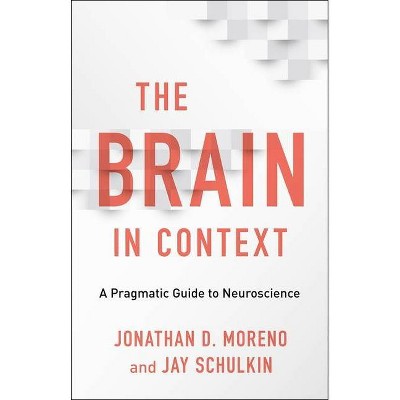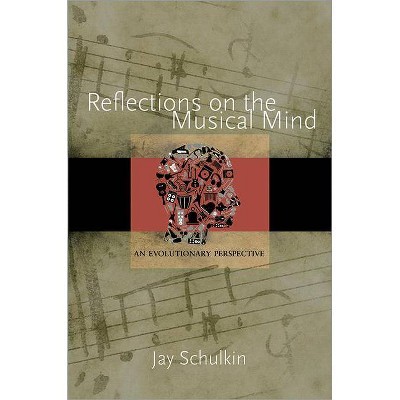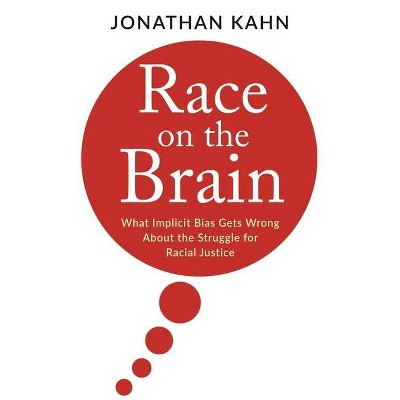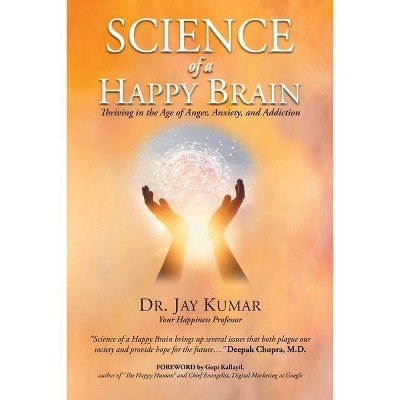The Brain in Context - by Jonathan D Moreno & Jay Schulkin (Hardcover)

Similar Products
Products of same category from the store
AllProduct info
<p/><br></br><p><b> About the Book </b></p></br></br>In <i>The Brain in Context</i>, bioethicist Jonathan D. Moreno and neuroscientist Jay Schulkin provide an accessible account of the evolution of neuroscience and the neuroscience of evolution. They describe today's transformative devices, theories, and methods, and they show how theorizing about the brain and experimenting with it often go hand in hand.<p/><br></br><p><b> Book Synopsis </b></p></br></br>The human brain is the most complex object in the known universe. The field of neuroscience has made remarkable strides in recent years in understanding aspects of the brain, yet we still struggle with seemingly fundamental questions about how the brain works. What lessons can we learn from neuroscience's successes and failures? What kinds of questions can neuroscience answer, and what will remain out of reach? <p/>In <i>The Brain in Context</i>, the bioethicist Jonathan D. Moreno and the neuroscientist Jay Schulkin provide an accessible and thought-provoking account of the evolution of neuroscience and the neuroscience of evolution. They emphasize that the brain is not an isolated organ--it extends into every part of the body and every aspect of human life. Understanding the brain requires studying the environmental, biological, chemical, genetic, and social factors that continue to shape it. Moreno and Schulkin describe today's transformative devices, theories, and methods, including technologies like fMRI and optogenetics as well as massive whole-brain activity maps and the attempt to create a digital simulation of the brain. They show how theorizing about the brain and experimenting with it often go hand in hand, and they raise cautions about unintended consequences of technological interventions. <i>The Brain in Context</i> is a stimulating and even-handed assessment of the scope and limits of what we know about how we think.<p/><br></br><p><b> Review Quotes </b></p></br></br><br>A valuable primer for nonspecialists interested in neuroscience.--Quarterly Review of Biology<br><br>Fascinating.--Nature<br><br><i>The Brain in Context </i>is a grand pragmatic tour through neuroscience and our quest to understand the brain. Remarkable in its trajectory from historical times to the pressing issues of contemporary research, the style is informal and clear. This new view on the state of modern neuroscience will be a pleasure to read for experts and enthusiasts alike, leaving us with a broad sense of the present state of the field.--Michael Hawrylycz, Allen Institute for Brain Science<br><br>A highly engaging introduction to what we know and don't know about the brain, surveying areas of solid understanding while also emphasizing the large gaps and uncertainties that remain. This book will provide value for anyone seeking a balanced perspective on this fascinating organ, which still remains mysterious in many ways. The authors are distinguished behavioral neuroscientists with broad interests, and they write with verve as well as authority.--Hal Pashler, editor in chief of <i>Encyclopedia of the Mind</i><br><br>How the brain works is as hard to explain to the general public as it is to students studying for a PhD in neuroscience. That's because no one has come up with a 'Grand Theory' of brain function, a conceptual framework analogous to Darwin's theory of biological evolution. <i>The </i><i>Brain in Context</i><i> </i>serves up an accessible and fascinating introduction to current thinking about what the brain does and how it does it. Moreno and Schulkin have rich backgrounds in writing about neuroscience, and do an admirable job of guiding readers between the current extremes of 'neurohype' (neuroscience is about to solve the world's problems) and 'neuropessimism' (the brain is so complex that tangible neuroscience solutions are indefinitely far away).--Larry W. Swanson, author of <i>Brain Architecture: Understanding the Basic Plan</i><br><br>Immerse yourself in this exhilarating book and you will be guided skillfully through much of contemporary neuroscience and its associated philosophy; there's always been a close connection between the two. We are our brains: they make us human but also individuals. Many of the most serious and life-damaging disorders occur when the brain malfunctions. In this book, you'll find a most readable account not only of what we currently know about the brain in all its complexity and variety, but also what we don't.--Joe Herbert, University of Cambridge<br><br><i>The Brain in Context</i> is a user-friendly book filled with interesting and informative essays about our brains as we understand them, how we achieved that understanding, and mistakes made along the way. A delight to read.--Joseph LeDoux, author of <i>The Deep History of Ourselves: The Four-Billion-Year Story of How We Got Conscious Brains</i><br><br>Jonathan Moreno and Jay Schulkin provide a wonderfully engaging account of the human brain and how it works. They smoothly blend the latest in scientific discoveries with a broad historical and philosophical perspective. <i>The Brain in Context</i> goes down easy and fires the imagination. Delightful and illuminating!--Kent Berridge, James Olds Distinguished University Professor of Psychology and Neuroscience, University of Michigan<br><br>Moreno and Schulkin deftly deploy an irresistible array of fascinating stories and witty, accessible analysis to open up a new worldview of our poorly understood brains. They treat us to the very best in philosophical, historical, and scientific analysis and illustrate how we arrived at knowing what we know as well as what we only think that we know about our brain as a whole. <i>The Brain in Context</i> is an indispensable read for all of us who use our brains yet scratch our heads about how they work. A true treat for all our minds to read and to ponder about our endlessly fascinating brains!--Amy Gutmann, president and Christopher H. Browne Distinguished Professor of Political Science and professor of communication, University of Pennsylvania<br><p/><br></br><p><b> About the Author </b></p></br></br>Jonathan D. Moreno is David and Lyn Silfen University Professor and a Penn Integrates Knowledge professor at the University of Pennsylvania, where he is also a professor of medical ethics and health policy, history and sociology of science, and philosophy. His books include <i>Mind Wars: Brain Science and the Military in the 21st Century</i> (2012) and <i>Impromptu Man: J. L. Moreno and the Origins of Psychodrama, Encounter Culture, and the Social Network</i> (2014). <p/>Jay Schulkin is a research professor in the Department of Neuroscience at Georgetown University. He is the author of numerous books, including <i>Reflections on the Musical Mind: An Evolutionary Perspective</i> (2013) and <i>Sport: A Biological, Philosophical, and Cultural Perspective </i>(Columbia, 2016).
Price History
Cheapest price in the interval: 30.49 on November 8, 2021
Most expensive price in the interval: 30.49 on December 20, 2021
Price Archive shows prices from various stores, lets you see history and find the cheapest. There is no actual sale on the website. For all support, inquiry and suggestion messagescommunication@pricearchive.us




















